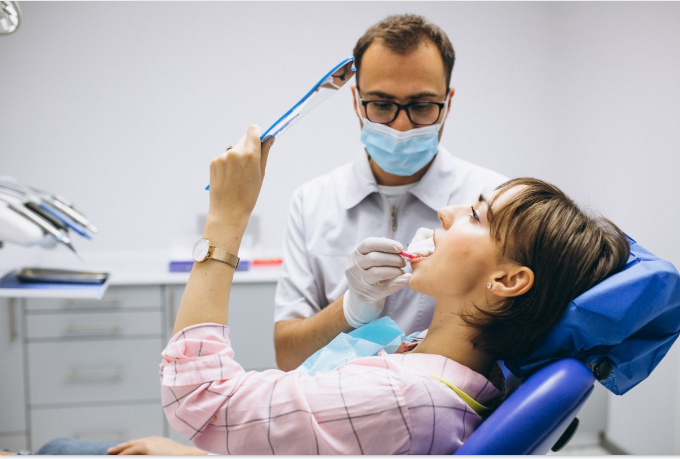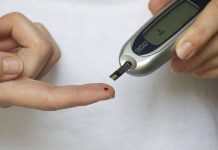The human body produces a wide variety of different hormones that each have their own important job to do. These hormones can control everything from ovulation to oral health, although the latter is not one of the better-known hormone-related health issues.
Just like so many women at the onset of perimenopause, you may begin to experience a range of surprising health changes – everything from vaginal dryness and night sweats to dry mouth and gum disease. Your symptoms may fluctuate from one day to the next and you may not always connect them to perimenopause.
In this article, we discuss what you need to know about menopause and oral health.
“The main reason your oral health can be negatively affected by perimenopause is because of changing hormone levels”
Negative Effects of Menopause on Your Oral Health

Researchers conducted a comprehensive review of available literature on menopause and oral health to identify ways that hormonal changes affect oral health. Periodontal issues, or issues with gum disease, was the most concerning health issue presented by available literature. Dry mouth and burning mouth were the next most common and concerning.
The main reason your oral health can be negatively affected by perimenopause is because of changing hormone levels.
While most women don’t realize this, the mouth tissues rely heavily on the same hormones that your reproductive system relies on to work normally and stay healthy.
So as hormone levels become more erratic, your mouth tissues begin to struggle to do their job well. This can then place pressure on the teeth, gums and entire oral system.
Signs and Symptoms
“A relatively common symptom that occurs during perimenopause is called burning mouth syndrome. As the name suggests, burning mouth syndrome can be very uncomfortable”
In one study, researchers showed that there are many important similarities between mouth tissues and vaginal tissues, including the presence of the hormone estrogen. So it makes sense that you might experience discomfort, dryness and burning, for example, in both places.
Here are some of the specific oral health conditions researchers have linked to perimenopause.
Dry mouth
As perimenopause proceeds and estrogen levels decline, this can lead to a common condition called dry mouth. Dry mouth is caused when saliva production reduces.
Burning mouth syndrome
Another relatively common symptom that occurs during perimenopause is called burning mouth syndrome. As the name suggests, burning mouth syndrome can be very uncomfortable!
This condition is linked to lower estrogen levels combined with higher levels of follicle stimulating hormone.
Gum disease
Periodontal disease, or gum disease, becomes more prevalent as you get older. Part of the reason perimenopause can trigger gum disease is because of the fluctuations in the hormones estrogen and progesterone.
In fact, according to dentist Dr. Alice Boghosian, decreasing bone density in the jaw is linked to the same estrogen decreases that cause osteoporosis in other bone groups.
The American Dental Association reports that surges of estrogen and progesterone send more blood rushing to the gums. The influx of these hormones is like a message to the gums to sit up and pay attention.
The gums become hyper-sensitive and more easily irritated, inflamed or swollen. Gum inflammation can then trigger bleeding. In time, the surrounding jaw bone can also be affected and you may begin to lose both bone and teeth.
“The traditional western medicine approach has been to use HRT (hormone replacement therapy) to balance out hormone fluctuations”
Prevention and Treatments

Perimenopause happens to every woman at some point in life. Whether it is induced suddenly by a full hysterectomy or comes on gradually over time later in life, this time in your life is guaranteed to bring unexpected symptoms and changes.
The traditional western medicine approach has been to use HRT (hormone replacement therapy) to balance out hormone fluctuations. However, HRT therapy has its own side effects to consider and it doesn’t work well for all women.
Luckily, other options are available, including vitamin and mineral supplementation to combat bone and tooth loss.
When to See Your Dentist?

If your own efforts at home are not producing sufficient symptoms relief or if your gums are bleeding, swollen or irritated, a call to your dentist is definitely in order!
Menopause may affect all women, but your personal experience is going to be unique to you. Every woman will get different symptoms at different times and with different degrees of severity. Always take your own oral health symptoms seriously and seek your dentist’s help to feel better.
Sources & References:
https://www.ncbi.nlm.nih.gov/pmc/articles/PMC3793432/





















